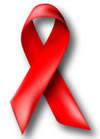
|
Antiretroviral Therapy Benefits HIV-infected Stimulant Users, UCSF Study Shows
By Jeff Sheehy
October 10, 2014 - New clinical research from UC San Francisco shows that 341 HIV-infected men who
reported using stimulants such as methamphetamine or cocaine derived life-saving benefits from being on antiretroviral therapy that
were comparable to those of HIV-infected men who do not use stimulants.
That said, those who reported using stimulants at more than half of at least two study visits did have modestly
increased chances of progressing to AIDS or dying after starting antiretroviral therapy compared to non-users. The data was
collected between 1996 and 2012.
"Patients with HIV who use stimulants and other substances often experience difficulties with accessing
antiretroviral therapy, partially due to the concerns of healthcare providers that they will not be able take their
medications as directed. Findings from this study demonstrate that many stimulant users take their antiretroviral
therapy at levels sufficient to avoid negative clinical outcomes. When we look at overall mortality,
antiretroviral therapy leads to similar clinical benefits for both stimulant users and non-users,
notwithstanding stimulant use," said the study's primary
investigator, Adam W. Carrico, PhD, UCSF assistant professor of nursing.
The research is available starting in October online ahead of print in the Journal of Acquired Immune Deficiency Syndromes. The
study included 1,313 HIV-infected men who have sex with men within the Multicenter AIDS Cohort Study, an ongoing nationwide prospective
study of HIV infection among men who have sex with men in the U.S.
"If we are to achieve the goals of the President's National HIV/AIDS Strategy and UNAIDS to end the HIV/AIDS epidemic,
we will need to treat HIV-positive active substance users for their HIV while encouraging them to stop or reduce their substance use.
Programs integrating substance abuse services with HIV clinical care may both improve health outcomes for patients and reduce new
infections," said Carrico.
The UCSF Division of HIV/AIDS at San Francisco General Hospital has created an integrated care delivery system that could serve
as a model for other clinics, added Carrico. The HIV primary care clinic utilizes a patient centered team care approach that
includes substance abuse services for stimulant and opioid users, along with mental health services, all located onsite.
STOP, the "stimulant treatment outpatient program," within the clinic provides outpatient substance abuse and mental health treatment integrated with patients' primary medical care.
"The pattern of use varies and the real issue is whether patients can take their antiretrovirals as prescribed. We find that some patients
are able to start taking antiretrovirals very reliably before they are able to decrease or stop their stimulant use, which often
requires more complex behavioral, emotional, interpersonal and environmental changes. Being in an HIV primary care setting
allows us to engage stimulant users even if they are not ready to go to specialty substance abuse programs or support
groups," said Valerie Grube, PhD, STOP
director and UCSF professor of psychiatry.
Study co-investigators include Stephen Shoptaw, PhD, from UCLA; Christopher Cox, PhD, and Xiuhong Li, MAS from Johns Hopkins
University; Ronald Stall, PhD from the University of Pittsburgh; David G. Ostrow, MD, PhD, from the Chicago MACS and Ostrow & Associates,
Chicago; Michael W. Plankey, PhD, from Georgetown University; and David Vlahow, RN, PhD, Dean of the UCSF School of Nursing.
The Multicenter AIDS Cohort Study (MACS) includes the following: Baltimore: The Johns Hopkins University Bloomberg School
of Public Health: Joseph B. Margolick (Principal Investigator), Chicago: Howard Brown Health Center, Feinberg School of Medicine,
Northwestern University, and Cook County Bureau of Health Services: John P. Phair (Principal Investigator), Joan S. Chmiel
(Co-Principal Investigator), Los Angeles: University of California, UCLA Schools of Public Health and Medicine: Roger Detels
(Principal Investigator), Barbara R. Visscher (Co-Principal Investigator), Pittsburgh: University of Pittsburgh, Graduate
School of Public Health: Charles R. Rinaldo (Principal Investigator), Lawrence Kingsley (Co-Principal Investigator), The
Johns Hopkins University Bloomberg School of Public Health: Lisa P. Jacobson (Principal Investigator), Alvaro Muņoz
(Co-Principal Investigator), NIH: National Institute of Allergy and Infectious Diseases: Robin E. Huebner;
National Cancer Institute: Geraldina Dominguez; National Heart, Lung and Blood Institute: Cheryl McDonald.
Funding for the research was provided by the National Institute of Allergy and Infectious Diseases, the National Cancer
Institute, the National Heart, Lung and Blood Institute, and the National Institute on Deafness and Communication Disorders.
The UCSF School of Nursing, affiliated with the AIDS Research Institute at UCSF, is one of the only programs to provide
nurse practitioners with specialty training in HIV/AIDS, and in 2013 it ranked #1 in NIH funding nationwide.
The AIDS Research Institute (ARI) at UCSF houses
hundreds of scientists and dozens of programs throughout UCSF and affiliated labs and
institutions, making ARI one of the largest AIDS research entities in the world.
UCSF ranks #1 among medical schools in the U.S. for its AIDS programs according
to US News & World Report , as it has every year since the category was created in 2001.
UCSF is the nation's leading university exclusively focused on health. Now celebrating the 150th anniversary of its
founding as a medical college, UCSF is dedicated to transforming health worldwide through advanced biomedical research,
graduate-level education in the life sciences and health professions, and excellence in patient care. It includes
top-ranked graduate schools of dentistry, medicine, nursing and pharmacy; a graduate division with
world-renowned programs in the biological sciences, a preeminent biomedical research enterprise
and top-tier hospitals, UCSF Medical Center and UCSF Benioff Children's Hospitals.
CONTACT:
Jeff Sheehy
jsheehy@ari.ucsf.edu
415-597-8165
Source: University of California, San Francisco
http://www.ucsf.edu/news/2014/10/119316/antiretroviral-therapy-benefits-hiv-infected-stimulant-users-ucsf-study-shows
"Reproduced with permission - University of California, San Francisco "
University of California, San Francisco
For more HIV and AIDS News visit...
Positively Positive - Living with HIV/AIDS:
HIV/AIDS News
|